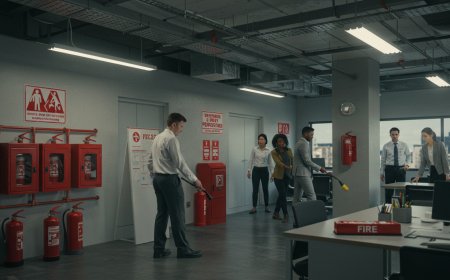Why Editing Is More Than Just Fixing Typos
When most people think of editing, they imagine someone hunched over a manuscript with a red pen, circling misspelled words and fixing commas. Sure, catching typos is part of the processbut editing, real editing, goes far beyond surface-level cleanup. Its about structure, voice, pacing, character arcs, consistency, and clarity. Its where raw stories are transformed into polished, publishable books.
Lets peel back the curtain and look at what editing really involvesand why skipping the deeper layers is a mistake no writer can afford to make.
The Layers of Editing: More Than Meets the Eye
Editing isnt just one taskits a multi-layered process. Think of it like renovating a house. You dont just repaint the walls and call it a day. Sometimes, you need to knock out a wall, reroute the plumbing, or rebuild the foundation. The same applies to a manuscript.
Heres a quick breakdown of the main editing layers:
- Developmental Editing (or Structural Editing): This is the big-picture phase. A developmental editor looks at the core of your storyplot structure, character development, pacing, world-building, and thematic consistency. Are your characters believable? Is the plot engaging? Does the narrative arc make sense? This stage might involve rewriting entire chapters or reordering scenes to improve flow.
- Line Editing: This focuses on the tone, language, and sentence structure. Line editors aim to refine the authors voice, improve clarity, eliminate redundancy, and make the prose more engaging. Theyre like the stylists of the editing worldpolishing every paragraph until it shines.
- Copyediting: Now were getting into grammar, punctuation, and syntax territory. A copyeditor ensures your manuscript follows style guidelines and is free of technical errors. Its precise, rule-based work that often goes unnoticeduntil its done wrong.
- Proofreading: This is the final check for typos, formatting errors, and minor slips. Its the last pass before your manuscript is considered ready for the world.
Developmental Editing: The Unsung Hero
If typos are the weeds in your garden, then developmental issues are the tangled roots. Developmental editing is where your book is truly shaped. Its not about fixing errorsits about identifying whats not working and making it stronger.
For example, maybe your protagonists motivation doesnt make sense. Or the climax feels rushed. Or your subplot goes nowhere. A developmental editor will spot these issues and help you fix themnot by rewriting your story, but by showing you how to improve it.
This stage can be tough. It requires humility, a willingness to revise, and a good amount of trust. But its also incredibly rewarding. Many authors say their book didnt really come alive until after developmental edits.
Why Good Editors Ask Hard Questions
A strong editor isnt just a fixertheyre a partner in your creative journey. They ask tough questions like:
- Whats your protagonists internal conflict?
- Why does this scene matter?
- Is this dialogue serving the story or just filling space?
- Whats the emotional payoff for the reader?
These questions might sting at first. But they push you to dig deeper and uncover the heart of your story. And when you finally answer them, something magical happens: your book gets better.
Its Not About Perfection. Its About Clarity.
Every book has flaws. Even bestsellers go through rounds of edits with professional teams. Editing isnt about chasing perfectionits about making sure your story is clear, cohesive, and compelling.
Readers will forgive a typo or two. But they wont forgive a boring plot, flat characters, or confusing structure. Thats why developmental and structural editing matters more than we often think.
A Better Story Means a Better Reader Experience
Imagine picking up a book with a killer premise, only to find yourself slogging through awkward pacing, inconsistent character behavior, or unexplained plot twists. Frustrating, right?
Thats what happens when editing is only skin-deep. The best stories dont just have good grammarthey have rhythm, flow, tension, and emotional impact. Good editing creates a seamless reading experience. It ensures readers stay immersed in your world instead of getting yanked out by clunky prose or logic gaps.
Editing Is a CollaborationNot a Correction
Writers sometimes resist editing because it feels like criticism. But in reality, its collaboration. A great editor doesnt impose their visionthey amplify yours.
They see your storys potential and help you unlock it. They bring an outside perspective that readers will eventually bring. And they care deeply about your worksometimes even more than you realize.
So when your editor says, This chapter needs reworking, theyre not tearing you down. Theyre building you up.
The Editors Superpower: Seeing What You Cant
When youve stared at your manuscript for months (or years), its easy to lose objectivity. You know what you meant to say, so your brain fills in the blankseven if those blanks are confusing to someone else.
Editors have the fresh eyes you no longer possess. They spot inconsistencies you missed, catch logic holes you thought were clear, and flag repetitive phrases you didnt realize you were using. They shine a light on the blind spots you didnt even know existed.
Dont Skip the Hard Stuff
Its tempting to jump straight from writing to publishing. But skipping editingor doing only a surface-level checkcan sabotage all your hard work. No matter how brilliant your idea is, poor execution will hold it back.
Think of editing as part of the creative process, not just a clean-up phase. Its where your story evolves, sharpens, and becomes its best self.
Where Oxford Book Writers Comes In
If youve ever felt overwhelmed by the editing process, youre not alone. Its a lot to navigateespecially when you're so close to the material. Thats where professional guidance makes a difference.
At Oxford Book Writers, editing is about more than polishing pagesits about elevating your entire manuscript. With a team that understands the nuance of storytelling and structure, they offer more than just a technical edit. They offer insight, partnership, and the kind of feedback that helps your story reach its full potential.
Whether youre working on your debut novel, a nonfiction book, or something in between, collaborating with seasoned editors who truly get your vision can be the turning point between a good draft and a great book.
Final Thoughts: Editing Is the Real Magic
Writing is rewriting, as they sayand editing is where the real magic happens. Its the invisible art behind every powerful story youve ever read. Beyond grammar, beyond typos, editing is where your story learns to breathe, walk, and run.
So dont fear the red pen. Embrace the process. And remember, behind every successful author is an editor who saw what the story could be.
Ready to take your manuscript to the next level? You already have the story. Now its time to shape it into something unforgettablewith a little help from professionals who know how. Just like the team at Oxford Book Writers.





















![Top 11 Real Estate Mobile App Developers in Riyadh, Saudi Arabia [2025 Edition]](https://www.philadelphialivenews.com/uploads/images/202506/image_430x256_68621a9e48997.jpg)
























